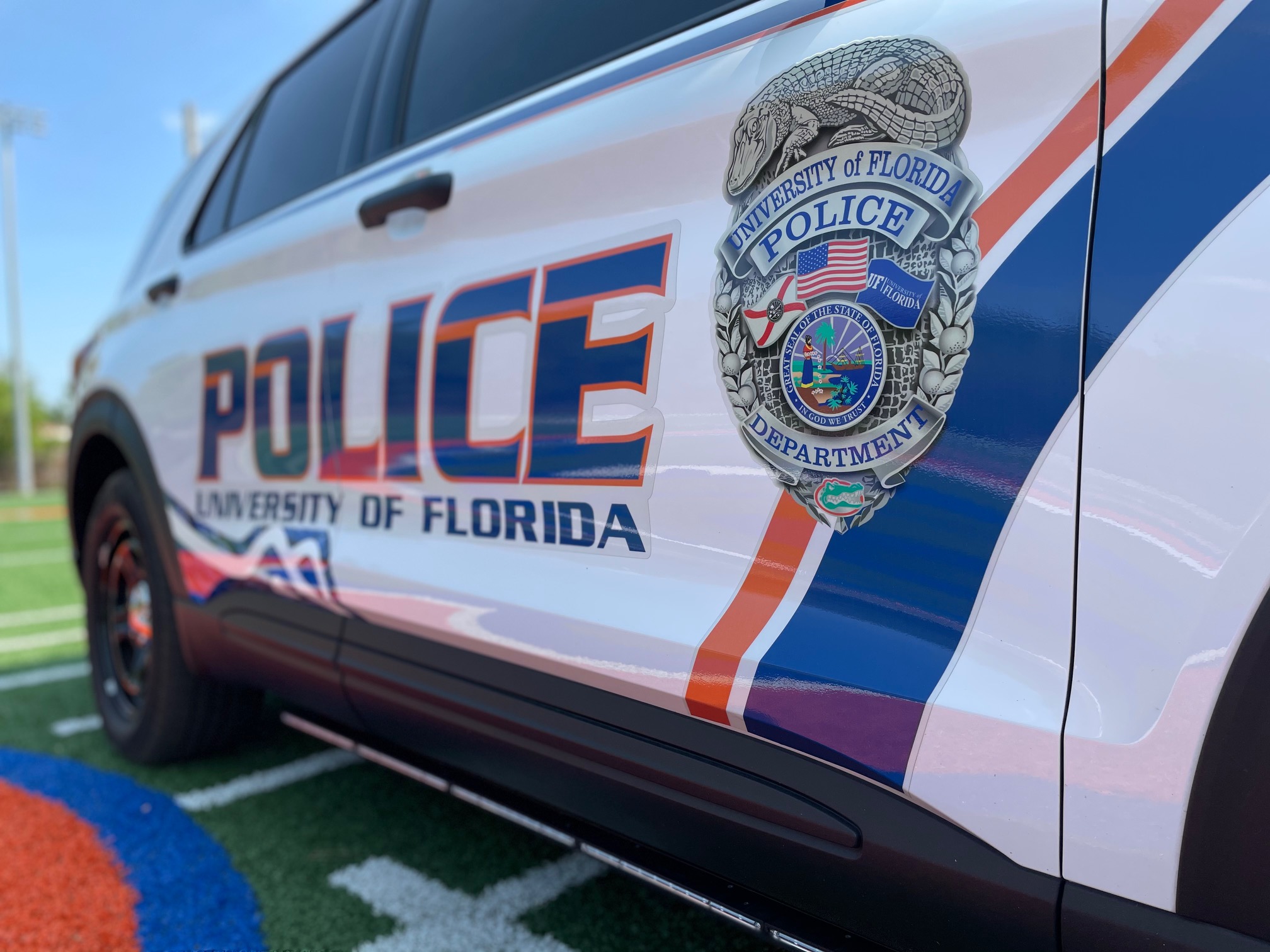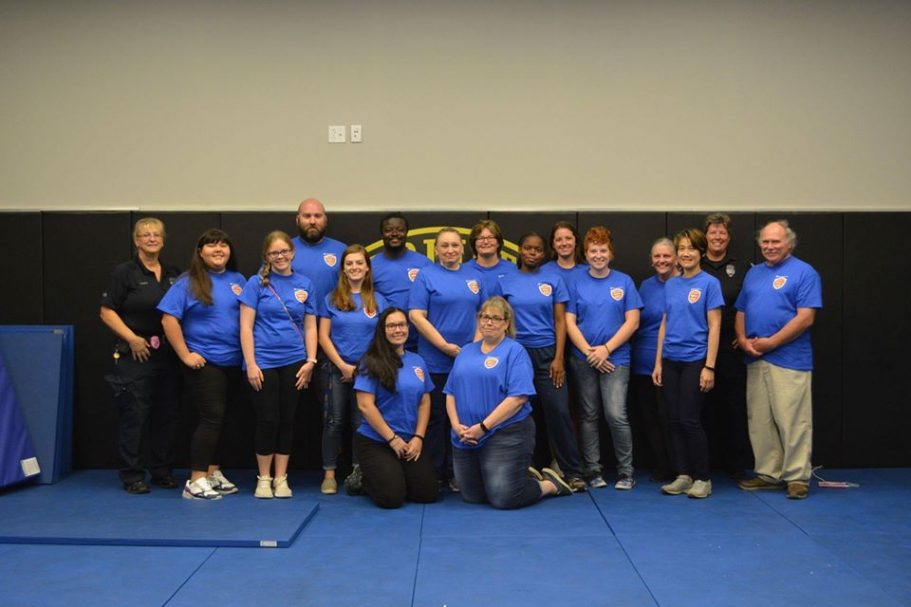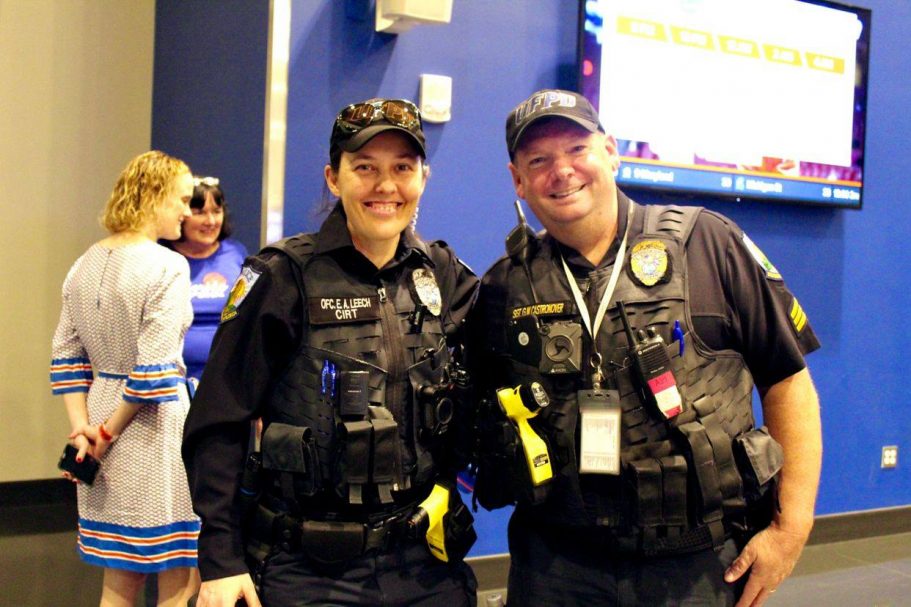- Homepage
- DIVISIONS
- Support Services
- Community Services Division
Community Services Division
Welcome! You have arrived at the University of Florida Police Department’s Community Services Division’s page. As discussed throughout the UFPD website, the University of Florida Police Department recognizes the importance of establishing close ties with all members of the community we serve. In order to facilitate the establishment of these ties, the University of Florida Police Department established the Community Services Division.
A Police Lieutenant, a Police Sergeant, and two Police Officers, under the direction of a Police Captain staff the Community Services Division. The division is a specifically designed unit that is responsible for organizing, establishing, maintaining, and promoting coordinated crime prevention and community-related programs. Throughout the year, the officers of the Community Services Division conduct numerous education programs at the request of the community. As discussed in further detail below, the division also has a School Resource Officer assigned to P.K. Yonge Laboratory School. The presence of this officer every day on campus has improved the relations between the school, the students, and the parents. Additionally, our officers serve as the department’s liaisons with various student groups including student-athletes, fraternity/sorority members, and several other special interest groups on campus.
We hope that you have the time to view the information pertaining to our various programs and crime prevention/safety tips. We will continue to expand our sources of information as they become available, so please be sure to check back often.
The University of Florida Police Department
Community Services Division
1555 Museum Road
P.O. Box 112150
Gainesville, FL 32611-2150
(352) 392-1409
e-mail: UPD-CSD@ad.ufl.edu





